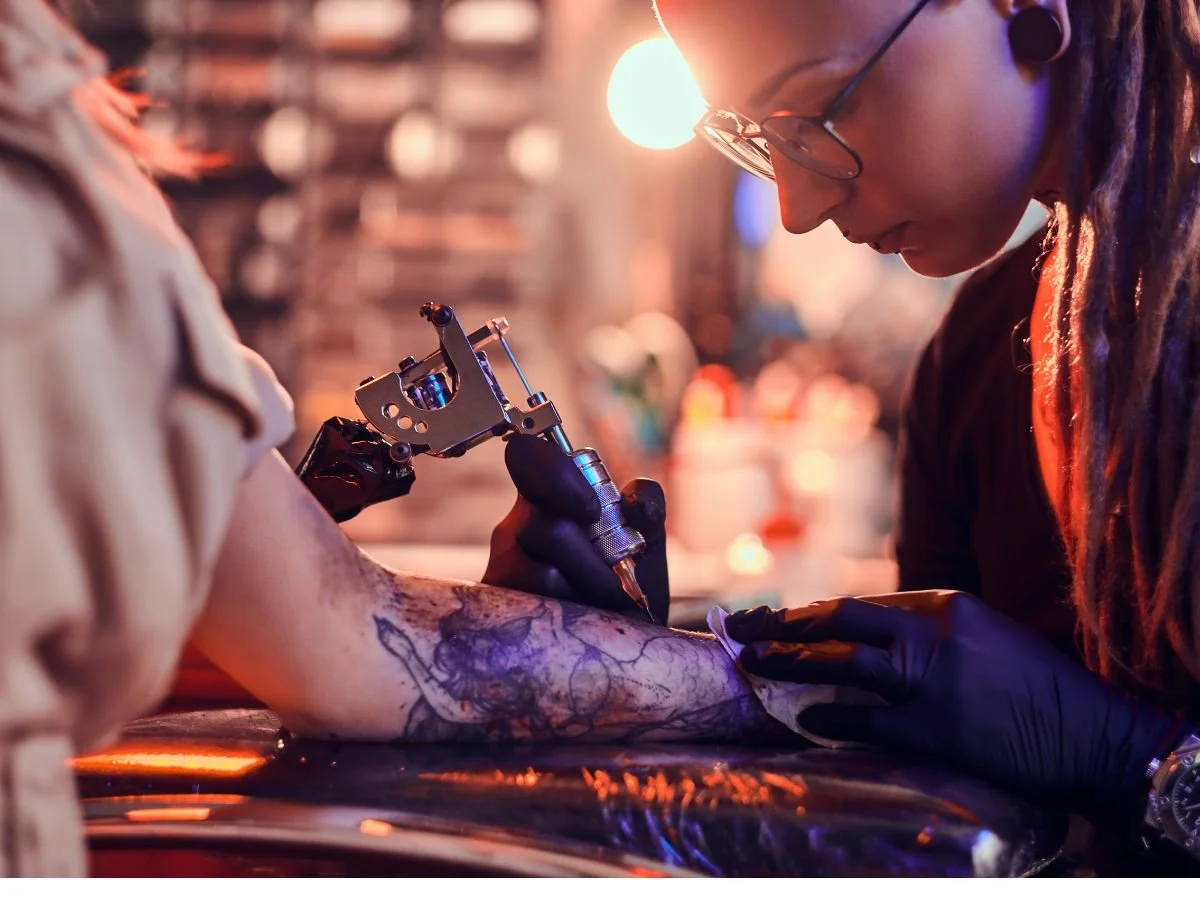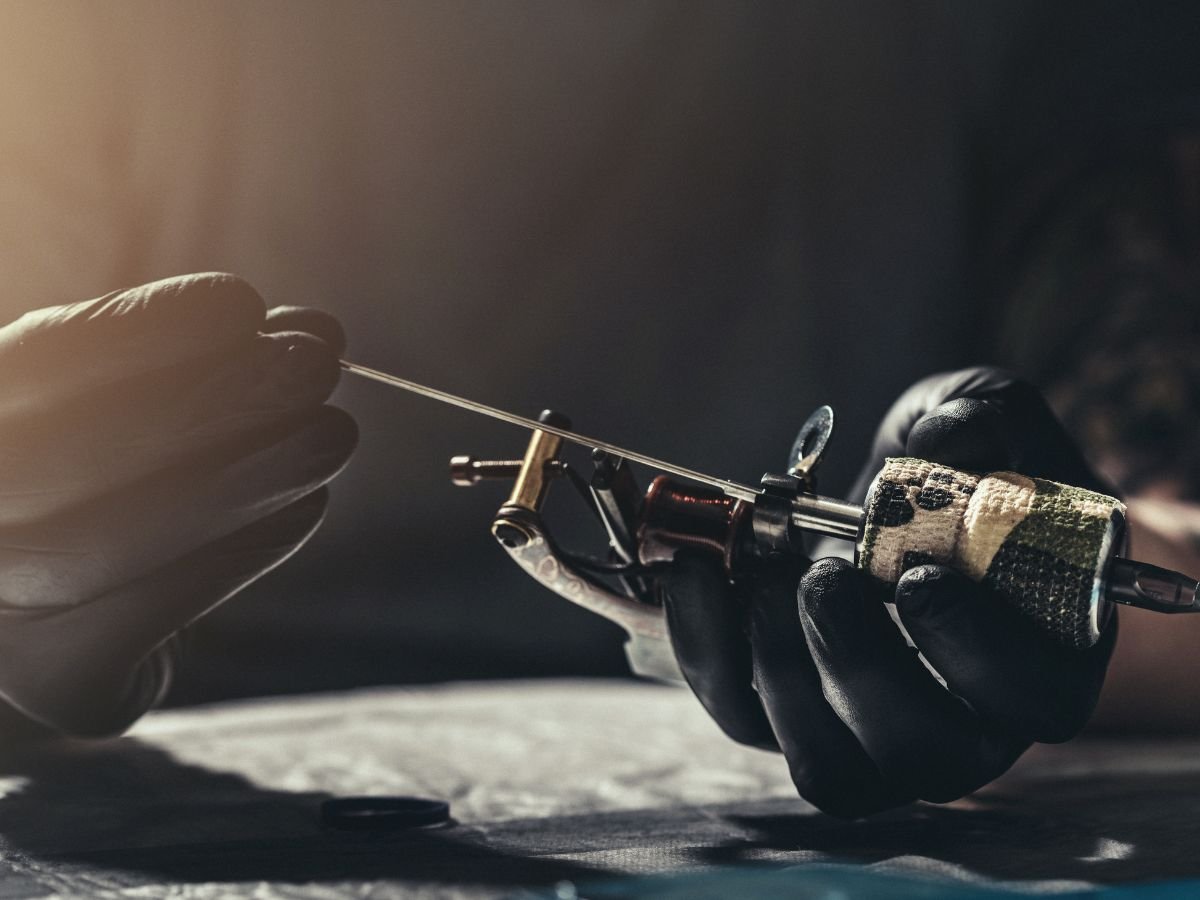What Tattoo Classes for Beginners Really Teach You
Most people think tattoo classes for beginners are just about learning to draw on skin. Wrong. Tattooing for beginners is more than just doodling with a needle; it’s an intricate art form that demands a deep understanding of design, hygiene, and human interaction.
There’s a common misconception that attending tattoo courses for beginners is a waste of time. Many believe that real talent doesn’t need formal training. They couldn't be more mistaken. Even the most gifted beginner tattoo artist needs to learn the basics, and that’s where tattoo artist classes come in.
Tattoo classes for beginners go beyond just teaching you how to hold a tattoo gun for beginners. They provide the foundation for a successful career in the industry, covering everything from tattoo art classes and color theory to client management. Neglecting these fundamentals is like trying to bake a cake without a receipt possible, but likely disastrous.
So, what do these tattoo beginner course programs really teach you?
The Foundations of Art and Design
Tattoo lessons for beginners often start with what might seem like the basics, but these are the building blocks that separate amateur doodlers from professional artists. Without mastering the core concepts of shading tattoo techniques for beginners, line work, color theory, and composition, you’re not really tattooing you’re just playing with a needle.
Let’s get one thing straight: tattoo lining techniques for beginners aren’t just about drawing straight lines. It’s about control, precision, and making sure your tattoo doesn’t look like it was done by someone who had one too many espressos.
Shading is where many beginners trip up. Good shading brings a tattoo to life. In tattooing courses, you’ll learn subtle shading and basic tattooing techniques, which can mean the difference between a tattoo that pops and one that flops.
Color theory in tattoo training is crucial. Understanding how colors work together can prevent your tattoo from looking like a bad acid trip. A proper tattoo beginner course will teach you how to blend colors and choose palettes that elevate your designs.
Tattoo drawing classes also cover composition, ensuring your tattoo flows naturally on the body. This is what tattoo training for beginners aims to perfect designs that fit the human canvas with style.
Tattoo Machine Mastery
Most people think holding a machine is all there is to it. But tattooing lessons aren't just about wielding a needle; it’s about mastering a tool. Knowing what tattoo machine is best for beginners can be a game-changer.
From coil to rotary, each machine is unique. In classes for tattooing, you’ll learn not only which machine suits which job but also how to set them up properly. Understanding beginner tattoo needle depth for lining and voltage settings is part of tattoo training expectations.
Proper machine maintenance is critical. Without it, even the best tattooing techniques for beginners fall flat. This is why tattoo schools drill machine care into their students.
Hygiene and Safety Protocols
In tattoo school for beginners, the first thing you learn is that hygiene isn’t negotiable. Infection is a real risk, which is why health care expertise in tattoo training is emphasized. You’ll be taught proper sterilization, the use of gloves, and cross-contamination protocols in every tattooing course.
Creating an open wound demands respect. Proper training ensures you don't just learn how to tattoo but how to do it safely. These hygiene lessons are foundational in both online and in-person tattoo teaching.
Skin Anatomy and Application Techniques
Understanding skin anatomy is essential in any tattoo beginner course. Different skin types react differently. Whether it's dry, oily, or sensitive skin, your tattooing techniques for beginners must adapt.
Both tattoo classes online and in-person stress this. You’ll be taught how to adjust based on skin type and how to minimize pain through proper beginner tattoo techniques.
From lining to shading, every action affects the skin differently. Learn this, and you won't just know how to tattoo for dummies, you’ll be a professional who knows how to keep clients happy and healthy.
Client Interaction and Professionalism
Even if you’ve mastered your art, bad customer service can tank your career. That’s why tattoo training for beginners includes soft skills.
Tattoo schools near me for beginners are increasingly incorporating modules on professionalism and client communication. Managing expectations, creating a relaxing environment, and giving solid aftercare instructions are all part of tattoo artist classes today.
Frequently ASKED questions
-
A: The best tattoo machine for beginners is a rotary tattoo machine due to its lightweight design, quiet operation, and ease of use. Rotary machines offer consistent performance and require less maintenance, making them ideal for those just starting in tattooing. Popular beginner-friendly brands include Dragonhawk, Cheyenne, and Mast.
-
A: The best tattoo gun for beginners is the Dragonhawk Mast Pen or Cheyenne Hawk Pen, as both offer simple setup, adjustable settings, and a pen-like grip that mimics natural drawing motion. These machines are great for learning basic lining, shading, and color packing techniques.
-
A: Essential tattoo techniques for beginners include lining, shading, and color packing. Beginners should first master clean, consistent lines using proper needle depth and machine speed. Shading requires soft hand movements for smooth gradients, while color packing involves evenly distributing color without overworking the skin. Practicing on synthetic skin is recommended before working on real clients.



